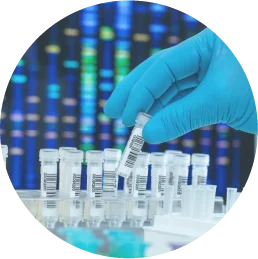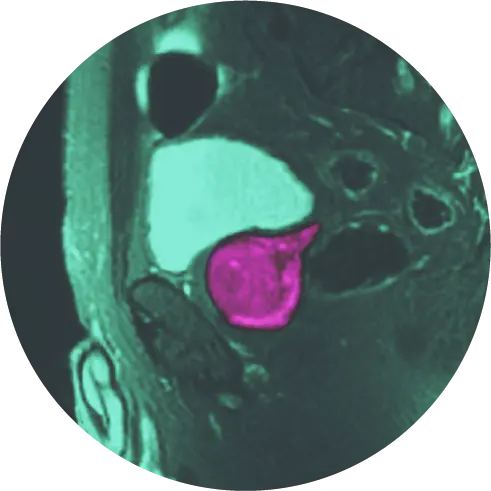As someone concerned about men’s health, especially that of your male friends and family, Movember is an opportunity for you to increase awareness of some of the health issues facing men.1 Movember, also called “No Shave November,” is a nationwide annual event where men grow mustaches and beards during November to raise money and awareness about prostate cancer, testicular cancer, and mental health issues.
Dr. Drew says, “Don’t procrastinate!”
HALO asked Dr. Drew about the importance of prostate cancer screening. He shared a bit of his personal story and said, “Don’t procrastinate!” in this short Cameo video.
How to Participate in Movember
There are many ways to participate in Movember, and you can mix and match or choose the best options for you. Here are some ideas to get you started:
- Donate much-needed funds for men’s health programs.
- Host an event virtually or in person to discuss men’s health issues and raise money and awareness.
- Participate in an event near you, whether it be a physical challenge goal, fundraiser, etc.
- Inspire others to participate with you in an event, donate to the cause, or host an event with their friends and family. They can ask others to join the movement, which has the potential to increase the money raised.
As a participant in Movember, your success will depend a great deal on how much you know because education is a powerful motivator. We will walk you through the basics, but you can dive as deep as you want so you have a positive and lasting impact on everyone you contact. Let’s review the men’s health issues for Movember: prostate cancer, testicular cancer, and mental health.
Why Is Prostate Cancer a Concern for Men?
Prostate cancer is more common than you may realize and can be deadly if not caught early. Here are some important characteristics of and risk factors for prostate cancer:
- Prostate cancer is the second-most-common cancer among men after skin cancer.
- Prostate cancer is more common among Black men.
- Men over the age of 40 are at higher risk for prostate cancer.
- A family history of prostate cancer can increase risk, but most cases do not have any family history.
- Harmful lifestyle factors, such as obesity, smoking, or an unhealthy diet, increase the risk of developing prostate cancer.
Symptoms of Prostate Cancer
Yearly screening for prostate cancer is recommended for African American men starting at age 45 and for all men at age 50, even if there are no symptoms.2
Typical Symptoms include:
- Blood in urine or seme.
- Erectile dysfunction
- Pain in hips and spine.
- Loss of bladder and bowel function.
- Weakness in legs.
- Trouble urinating, such as difficulty emptying the bladder or pain when urinating.
- Treatment of Prostate Cancer
The treatment for prostate cancer depends on several factors, including how aggressive it is and if it has spread.3
At HALO Diagnostics we offer Laser Focal Therapy (LFT) for low-to-intermediate prostate cancer. The minimally invasive procedure uses a thin laser fiber to ablate or kill cancer cells. LFT is typically takes about 4 hours to complete, and you can return to work the same day.
Why Is Testicular Cancer a Concern for Men?
Testicular cancer is the growth of cancer cells that starts in the testicles. Fortunately, it’s not a common form of cancer and is treatable. The cause of testicular cancer is unknown.
Testicular cancer is more common in men with a family history of the disease. Contrary to prostate cancer, younger men are at higher risk for testicular cancer, and White men are at higher risk than Black men.4
Symptoms of Testicular Cancer
Early intervention begins with recognition of the symptoms of testicular cancer:5
- A lump or swelling in either testicle.
- A feeling of heaviness in the scrotum.
- Pain in a testicle or the scrotum.
- Back pain.
- Breast tissue tenderness.
- An ache in the groin or lower belly.
Mental Health and Men
It can be challenging for men to talk about mental health and even more so about suicide. But the numbers are staggering: According to the CDC, the suicide rate among males in 2020 was four times higher than the rate among females. Males make up 49% of the population but nearly 80% of suicides.6
One of the goals of Movember is to encourage men to talk about depression, other mental health problems, and the risk factors of suicide. Men are much less likely to discuss mental health problems and may deny they have a problem, instead self-treating with alcohol and drugs. The risk factors for suicide include:
- Relationship problems.
- History of sexual or physical abuse.
- Imprisonment.
- Age (men over the age of 85 are at the highest risk).
- Loss of a loved one.
- Depression, chronic medical diseases, and pain.
- Social isolation.
- Unemployment.
- Drug or alcohol use.
By talking openly about mental health problems with one another, men may be more willing to get the help they need through counseling or other targeted mental health treatments. Erasing stigma takes time, but it also saves lives.
About Movember
The national organization Movember.com has funded more than 1,250 men’s health projects worldwide since 2003. Participating in Movember can help generate education and funding to prevent and treat these conditions. Participants can use this month to spread the word about importance of regular men’s health screenings and, especially, the importance of prostate cancer screening.
HALO and Movember for Men’s Health
At HALO, we use image-based diagnostic services and treatments for various medical conditions. We recognize that multiple efforts across health platforms and programs increase awareness of conditions and can lead to successful treatment. Movember is one great example of a nationwide effort to encourage participation in promoting education and treatment of men’s health conditions. HALO is here to help.
References
2 https://www.cancer.org/cancer/prostate-cancer/detection-diagnosis-staging/acs-recommendations.html
3 https://www.mayoclinic.org/diseases-conditions/prostate-cancer/diagnosis-treatment/drc-20353093




